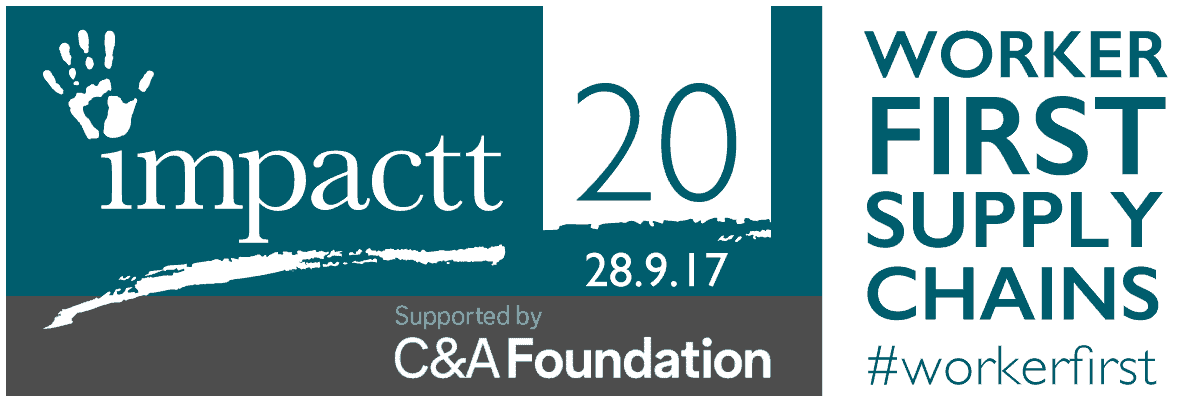Greenhouse Pioneer: Rosey Hurst, Impactt

Improving the lives of six million workers in global supply chains by 2020. That’s the goal of Impactt, an ethical trade consultancy working to build productive supply chains in a way that benefits both businesses and workers.
In the run up to their 20th anniversary conference, we caught up with Impactt founder and director, Rosey Hurst, to discover more about their work and her plans for the future.

1. Tell us, in 20 words or fewer, about Impactt – what’s your mission?
Our mission is to make what works for workers work for business. That means making sure jobs in the global supply chain deliver benefits for both.
2. What drives you?
Right now, global supply chains are set up in a way that tends to exploit. I am driven by the belief that it doesn’t have to be that way and the certainty that we can make a difference to improve livelihoods worldwide.
3. What is your greatest achievement to date?
There are two things that I’m really proud of, the first one being getting hundreds of working children back to school so that they can have a better life in the future. Secondly, helping hundreds of decision-makers to engage in an act of collective imagination, to imagine and then deliver better jobs in supply chains.
4. What are the challenges you face?
The biggest challenge is resistance to change. Even when the problems are clear, and there is a real will to solve them, we all find it much more comfortable to keep on doing things the same way. That’s human nature. But it’s madness to expect to solve entrenched problems by just carrying on. Everyone has a role to play here: investors, consumers, brands, factory owners and workers.

5. What are you working on that’s getting you fired up and excited?
I’m really excited about our upcoming 20th anniversary conference, as we will be joined by a group of workers. So often their perspective is misunderstood. So many policy-makers haven’t spent much time with workers, so it is hard for them to make good decisions. Getting the workers at the centre of the conversation is crucial.
At the conference, workers will be able to talk directly about their experiences and they will also give their views on all of our work, including a session critiquing what they have heard at the end of the conference. I’m very excited about that.
6. Where do you want to take Impactt next?
We want to have had a positive impact on six million workers by 2020, and we’re well on our way to doing that. We’re working on several projects, particularly on improving human productivity and recognising skills, because if a worker’s skill is recognised, and their productivity is improved, that worker can not only be paid more but also gain respect for their skills and input. That respect is very important.
We’re also focusing very hard on social psychology, looking at the psychological drivers for exploitation, and how we can affect those. We’ve had some really good results lately on significant and long-lasting changes in attitudes at factory-level in countries such as Myanmar, India, China and Bangladesh.
7. What can we, as individuals, do to make a difference?
The consumer voice is still too weak. Every time you go to a shop you can ask the assistant questions, email the CEO or do anything else to keep the issue of ethical supply chains at top of the business agenda.
8. How is what you are doing inspiring change in others?
It’s about energy and communication, from the boardroom all the way down to the factory floor. I think Impactt is known for having a very high energy level and I think that inspires change.
9. Can you recommend a life- or game-changing book for our readers?
10 Types of Human by Dexter Dias – it looks at the psychology of brain chemistry behind the behaviour that leads to the exploitation of human rights.
10. What’s the best advice you’ve ever been given?
Anything is possible.
11. Can you leave us with who’d be your Eco Hero?
The Archbishop of Canterbury is fantastic on the topic of inequality in our society, inspiring and very hard to contradict.
On Thursday, Impactt is hosting its 20th anniversary conference, Building Worker First Supply Chains. The conference will be exploring how to strengthen supply chains by empowering workers and suppliers to voice their ideas, engage in meaningful collaboration, and lead the way to positive change. Get your tickets here, or join in the discussion using #WorkerFirst and help Impactt celebrate two decades of making what’s good for business good for workers.

At Greenhouse PR, we celebrate the work of individuals making a positive difference in the world. Visit our blog to hear from other inspiring pioneers such as Andrew Wallis, CEO of Unseen and Trevor Hutchings, Director of Advocacy at WWF UK.


